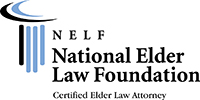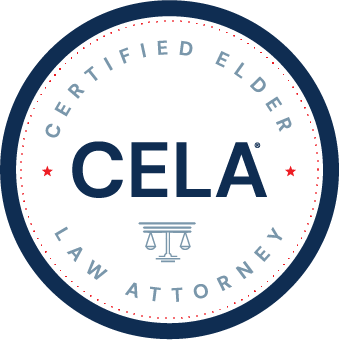The Law Offices of Bradley J. Frigon can help you insure that your lifetime of hard work and careful planning will benefit you during your lifetime and your loved ones after your death. Planning produces positive results upon a disability or death. Failing to plan can cause unnecessary problems, delays, taxes and expenses.
Failure to Plan
There is a 58% probability that you will suffer a disability of 90 days or more during your life. It is certain you will die. Failing to plan commonly results in the imposition of default "remedies," such as guardianships, conservatorships, and intestate succession. These default remedies frequently will not produce the results that you would have chosen. Failing to plan will often result in additional or unnecessary expenses, taxes, and delays.
AARP reports that only 60% of people over age 50 have wills, 45% of these people have durable powers of attorney, 30% of these people have advance medical directives, and only 23% have living trusts. These statistics indicate that most people fail to make a comprehensive estate plan. And of those who have completed their estate plans, the odds are that they haven't reviewed their plans in years.
a comprehensive estate plan
At a minimum, a comprehensive estate plan will address the following issues:
- Whom do I want to make healthcare decisions for me if I become disabled?
- What medical care do I want if I am dying and cannot make decisions concerning my care?
- If I become disabled, how will I pay for my nursing home or long-term care and for the support for those dependent upon me?
- Whom do I want to manage my assets and personal affairs if I become disabled?
- Whom do I want to settle my affairs and distribute my property after my death?
- Where do I want my property to go at my death?
- How can I minimize expenses, taxes (income, probate, and estate taxes) and delays if I become disabled or die?
- When I die, do I have sufficient assets or insurance to pay administrative expenses and taxes resulting from my death and to provide for my beneficiaries?
Estate Planning Information and Services
Special Needs
One must pay particular attention to estate planning for persons with disabilities or impairments or persons with minor, immature, disabled or impaired beneficiaries. A (d)(4)(A) or a (d)(4)(C) special needs trust can be created for a disabled person in order to preserve the disabled person's SSI or Medicaid eligibility. Those with (1) disabled or impaired beneficiaries, (2) minor or immature beneficiaries, or (3) beneficiaries with credit, marital, or substance abuse problems can create third party special needs trusts, spendthrift trusts, or incentive trusts to protect the beneficiaries and the trust assets.
fiduciaries
One of the most important decisions that one must make in creating an effective estate plan is the selection of the people who will implement the plan. These people are fiduciaries, and depending on the capacity in which they serve, they will be called an executor, trustee or agent. No matter how well designed an estate plan, it will produce poor results if it is poorly implemented. The fiduciary should have good judgment and experience in the management of money and assets, and be loyal. A well-crafted estate plan will appoint successor fiduciaries if the originally named fiduciaries are unable or unwilling to serve.
LEGAL DOCUMENTS
A comprehensive estate plan may incorporate some or all of the following legal documents:
- an advance medical directive
- a durable power of attorney
- a revocable living trust
- an irrevocable life insurance trust
- a family limited partnership
- a pre-marital or marital agreement
- a supplemental or special needs trust
- a will
Frequently, it will be necessary to retitle assets and coordinate the designation of beneficiaries of annuities, life insurance policies, IRAs, and retirement plan accounts with the legal documents. In some cases, it may be advisable to purchase life insurance or long-term care insurance.
Regular Review
Because laws and your personal circumstances change over time, you should regularly review your estate plan. We recommend that you review your estate plan with your attorney whenever you have had a significant change in your circumstances or at least every five years.
Learn more
Learn more by browsing our estate planning articles.
Call (720) 200-4025 now or email us to find out how our attorneys can help with your Estate Planning needs.
Bradley J. Frigon is a Denver Estate Lawyer Firm in Colorado. Our main offerings include: Elder Law Lawyers for protecting assets and an Estate Planning Attorney for all aspects of wills, trusts and estate administration.
Common Tags: Denver Colorado Estate Planning Lawyer, Family Attorney Greenwood Village CO, Lawyers Wills Centennial, Arapahoe County Law Firm, Information, Will and Trusts, Special Needs Trust, Advance Medical Directive, Durable Power of Attorney, Revocable, Irrevocable Life Insurance, Pre- Marital Agreement, Fiduciary Duties, Fiduciaries, Executor, Trustee, Services, Definition












